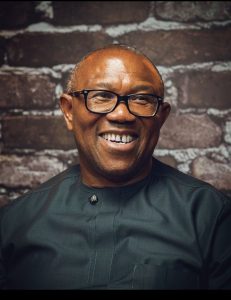

Threats Against Peter Obi Echo Nigeria’s Troubled Political Past
In early January 2025, Peter Obi, the Labour Party’s presidential candidate in the 2023 Nigerian elections, revealed that he received threats to his life and family. These threats followed his New Year message, where he criticized the current administration’s handling of Nigeria’s economic and security challenges. Obi stated, “My New Year message has now led to threats against my life, my family, and those around me.”
Historical Parallels: The Case of Funsho Williams
This situation mirrors the tragic case of Funsho Williams, a prominent Nigerian politician assassinated in 2006. Williams was a respected figure in Lagos State politics and a gubernatorial candidate. He was found murdered in his home under mysterious circumstances. His unsolved death removed a formidable contender from the political landscape.
During the 2003 Lagos State gubernatorial election, Williams was the main opponent of Bola Tinubu, who sought re-election as governor. Tinubu secured a second term by defeating Williams and other candidates. Today, Bola Tinubu serves as President, wielding significant power and influence.
Current Climate: Intimidation and Corruption Allegations
The threats against Obi and the assassination of Williams highlight the persistent dangers faced by opposition figures in Nigeria’s political arena. Both instances underscore a troubling pattern where political dissent often meets intimidation or violence, raising concerns about the health of Nigeria’s democracy.
Adding to this climate of intimidation, Felix Morka, the National Publicity Secretary of the All Progressives Congress (APC), recently made statements perceived as threats against Peter Obi. In a televised interview, Morka accused Obi of “crossing the line” in his criticisms of President Tinubu’s administration. He ominously remarked that Obi “has coming to him whatever he gets.”
Such rhetoric from a high-ranking party official exacerbates tensions and poses a direct threat to free speech and democratic engagement. It is crucial that political discourse remains civil and that dissenting voices are protected rather than silenced through intimidation.
Furthermore, President Tinubu’s tenure has been marred by allegations of corruption, casting a shadow over his mandate. Reports have surfaced linking him to alleged drug trafficking activities, with the U.S. blocking records on these allegations. Additionally, claims of financial misconduct involving Alpha-beta—a firm where Tinubu has interests—have emerged, raising questions about the integrity of his administration.
In a move that fuels suspicion further, authorities raided the Economic and Financial Crimes Commission (EFCC) less than 24 hours after Tinubu’s swearing-in. The EFCC plays a crucial role in investigating financial crimes. The timing of this raid raises concerns about potential interference with anti-corruption efforts and the administration’s commitment to transparency.
Evolving Dynamics: A More Vigilant Society under Tinubu
The political climate in 2025 differs significantly from that of 2006. The rise of social media and increased political awareness among the populace have created a more vigilant society demanding transparency and accountability. The Nigerian populace is more informed and connected than ever before and is unlikely to tolerate actions that undermine democratic principles.
While the threats against Peter Obi are deeply concerning, heightened public scrutiny and global attention on Nigeria’s democratic processes suggest that any attempt to suppress opposition through intimidation or violence would face substantial resistance. Therefore, the federal government must ensure the safety of all political actors to uphold democratic principles.
Upholding Democratic Principles
In conclusion, although historical precedents like Funsho Williams’ case serve as stark reminders of dangers besetting political figures, evolving dynamics in Nigeria’s political environment indicate that silencing opposition voices through threats or violence is increasingly untenable. Thus, the federal government must take decisive action to protect all political actors and ensure that Nigeria’s democracy remains robust and resilient.
For a deeper understanding of the circumstances surrounding Funsho Williams’ assassination, you may find the following video informative

